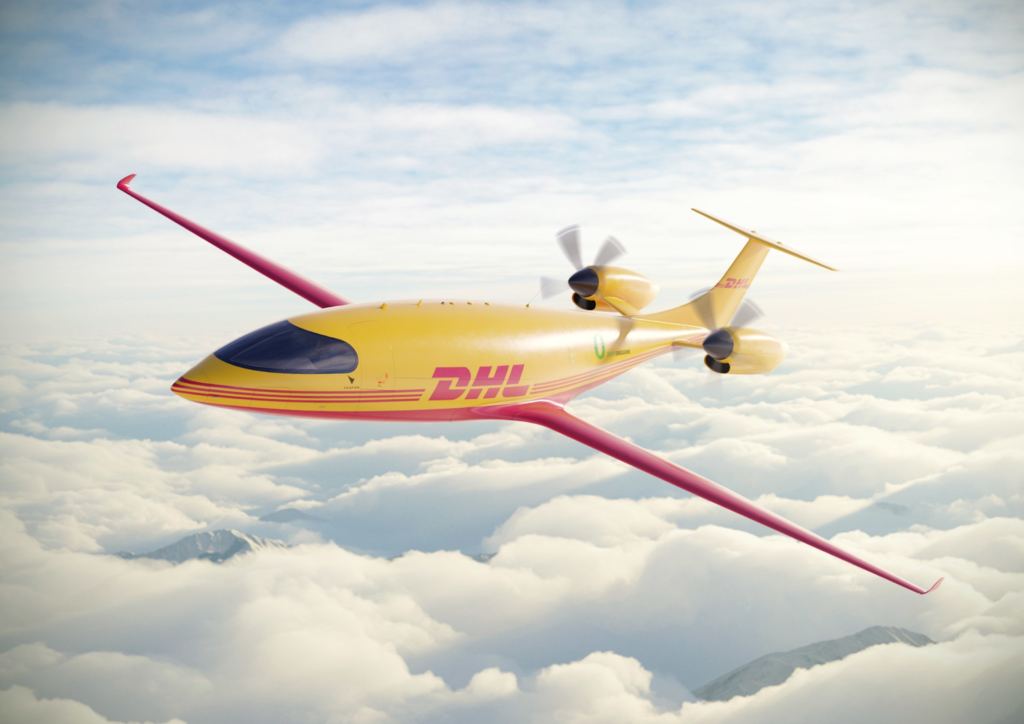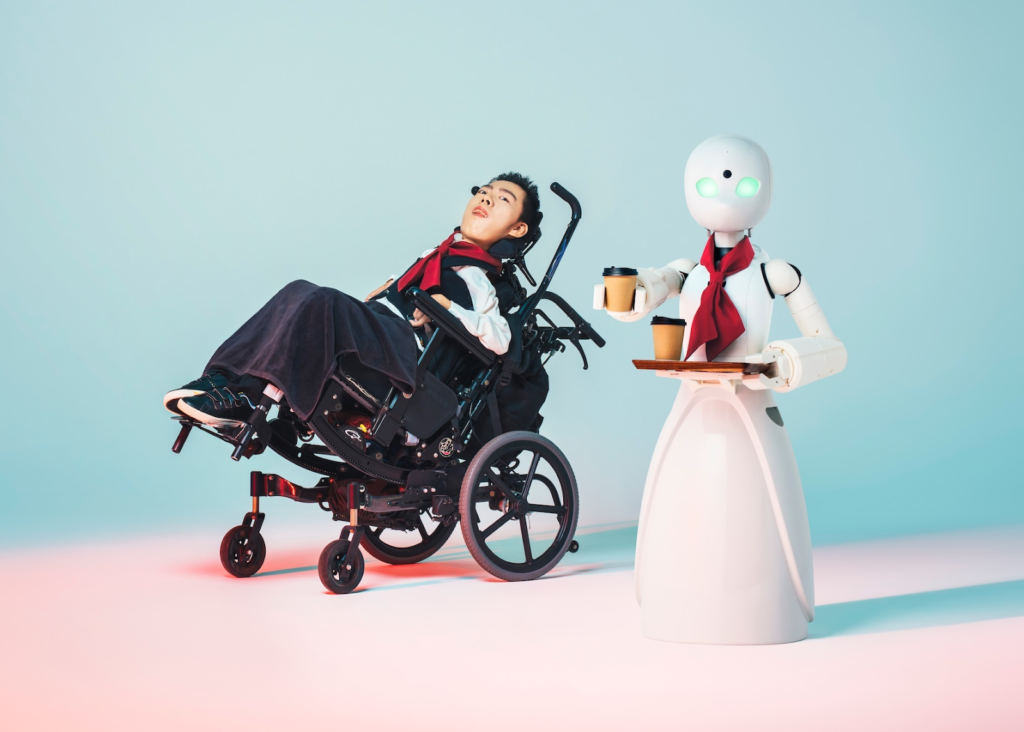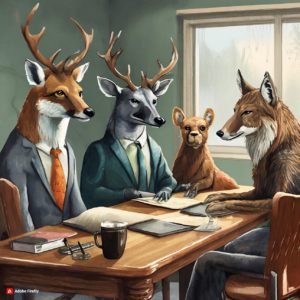
Happy Tuesday, and welcome to our 40 new readers… Deloitte has started to roll out a new climate learning programme for all 330,000 of its employees worldwide (in June rival Big Four firm PwC said it would add 100,000 ESG employees). Clearly, people are eager for sustainability info, and we hope we can help fill the void with this newsletter.
In today’s edition:
👗 Fashion giants step into blockchain
🚜 John Deere’s autonomous adventure
🌳 Carbon offsets + forest fires = innovative solutions

DHL write aviation history
International courier, DHL, wrote aviation history this week by being the first logistics company to order 12 fully electric eCargo planes (called Alice). The planes are suited to medium distance routes (also known as “feeder routes” which connect local depots with regional centers) – supporting DHL’s ultimate plan to create the world’s first electric cargo network.
More than a sustainable objective: Alice also has the potential to reduce costs and improve efficiency. As the aircraft’s advanced electric motors have fewer moving parts = increased reliability and reduced maintenance costs.

Record global impact fundraising
An impact investing fund specifically seeks to support beneficial social or environmental outcomes, in addition to generating financial returns. With big players TPG and Brookfield recently launching $12bn for new climate funds, the impact investing space has never been hotter. Globally there are 675 impact funds representing about $200bn
Fashion giants collaborate for blockchain-powered supply chain transparency trials
Challenge: Fashion supply chains are notoriously complex and brands often favour clothing suppliers that can produce clothing rapidly and cheaply to keep up with the fast fashion trend cycle = corners being cut in terms of environment and ethics (See here)
Solution: A collaboration between IBM and leading retailers (H&M Group, New Look and Next) will trial a tech platform that combines blockchain, AI and sensors to create a tamper-proof audit trail of how products are handled throughout the supply chains.
Why?
1) Uncover key ESG challenges and allow for targeted improvements
2) Satisfy growing demand for transparency from conscious consumers
3) Provide unique customer experiences – Albert Heijn developed a scannable barcode to view the journey of their orange juice and leave a thank you to the farmers.
in commitments so far in 2021.
🤖 Future of Tech (1-minute read)
Cafe in Tokyo employs robot waiters controlled by people with physical limitations
Challenge: People with physical limitations still face hurdles in the job market – In Asian nations unemployment is reliably double that of the general population and often as high as 80% or more.
Solution: The Ory Research Institute, a Japanese robotics company, has developed robot servers, which are controlled remotely by paralysed people. The 4-foot servers can be controlled just through eye-movement, and feature a microphone and a speaker to allow their operators to remotely interact with customers.
Watch this space … A trial cafe in Tokyo is run by ten of these robots with hopes the model can be expanded to create more job opportunities for paralysed workers and help tackle social isolation.

John Deere’s accelerating the use of autonomous farm machinery
Due to the growth cycles of plants, the planting and harvesting of crops must occur within strict, weather-influenced timescales. This is a challenge to farmers which is compounded by a lack of skilled labour in the industry. Add to this that many farmers’ are reluctant to adopt new technology, and you’ve got a recipe for disaster. John Deere is helping food producers overcome this challenge through their purchase of San Fran startup, Bear Flag Robotics – whose technology allows farmers to retrofit their current tractors to work autonomously. Retrofitting machines reduces the initial cost of going autonomous, which has resulted in high-levels of adoption amongst Bear Flag’s trial farms on the US West Coast.
💡Deep Dive (2-minute read)
The what: Forests across the US generate carbon offsets that have been bought by companies to help fulfill their corporate net-zero emission pledges. The companies rely on planting trees to compensate for the carbon dioxide they generate when they are unable to make sufficient cuts to their actual emissions.
Forestry projects are vulnerable to wildfires, drought and disease – threats exacerbated by global warming. 3,361,159. That’s how many acres of the U.S. have burned in wildfires this year with offsets lost, including those bought by BP and Microsoft.
Offset programmes carry a “buffer” of credits (around 10-20%) which remain unsold. Quantifying the impacts of a fire, and how many offsets to cancel, is complicated. It highlights a broader challenge about how we validate carbon sequestered by forest projects over time (In-person monitoring can be expensive and impractical)
Solutions:
- Remote tracking tools, like Pachama, use artificial intelligence, drones and satellite imagery are attempting to monitor vast swaths of forests
- Diversifying to other nature based carbon offsets (Ocean; Biodiversity; Agriculture)
- Policy:The Taskforce on Scaling Voluntary Carbon Markets, is developing recommendations for transparency and certification of offsets.

💭 Little Bytes
Quote: “If we combine forces now, we can avert climate catastrophe. But…there is no time for delay and no room for excuses. I count on government leaders and all stakeholders to ensure COP26 is a success.” UN Secretary General, António Guterres
Stat: Giant pandas are no longer endangered with the number of pandas in the wild in China reaching 1,800.
Watch: Thermal-powered floats monitoring the ocean without polluting it
🗞 In other news…
- The founder of Beyond meat, the world’s largest plant-based meat company, has suggested a tax on meat
- Iberian Lynx claws its way back from extinction
- These 500 Kenyan women are helping to save local forests
- How food companies can bake sustainability into food design
Walmart offering free college tuition and books to its 1.5 million employees
🎣 Gone Phishing
Three of these stories are true, one we made up, can you guess which?
Astronauts have their own olympics on the International Space Station
Miami launches its own cryptocurrency ‘MiamiCoin’ to fund the police
Oprah to launch her own sustainable Mexican restaurant chain
Doorbell camera catches owls in the middle of a dispute




